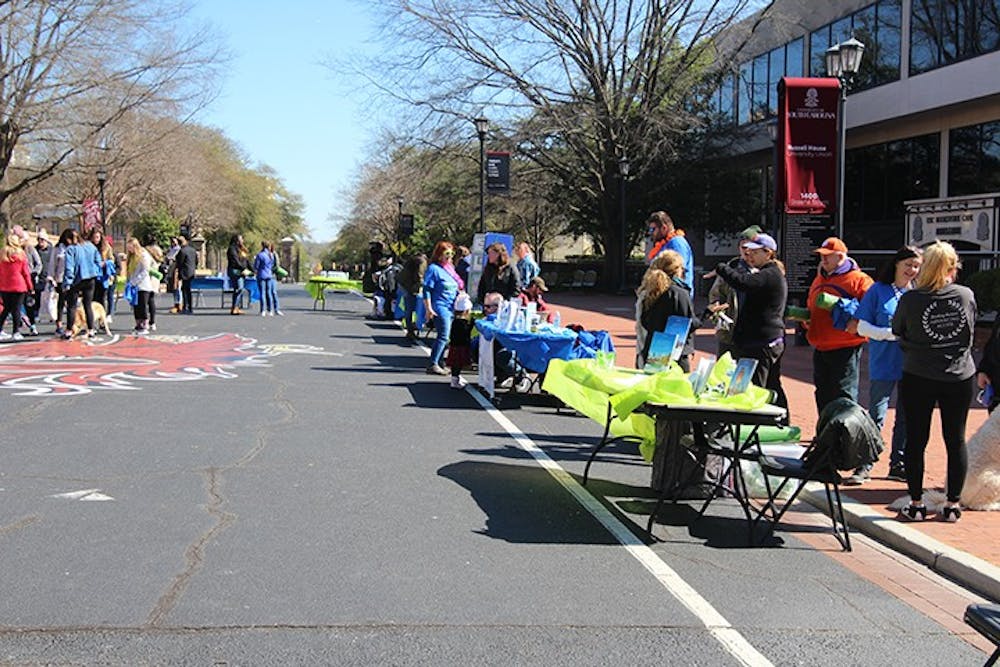More than 220 USC community members marched through the Horseshoe during the eighth annual National Eating Disorders Association (NEDA) Walk Saturday.
Karen McMullen brought the NEDA Walk to Columbia eight years ago after her daughter, then a freshman in high school, was diagnosed with anorexia. Columbia held the first NEDA Walk in South Carolina, and the walk has been on campus since 2017. This year, the walk raised more than $6,000 for NEDA and its efforts.
“I grew up dancing, and body image was always something that was very big,” Jessica Ayers, third-year math student and Delta Zeta member, said. “For me, I’ve been surrounded by eating disorders and difficult eating habits, so I think it’s really special that everyone comes together and creates awareness for it.”
The NEDA Walk was the last event in Student Government’s Carolina BeYOUtiful week. Last year’s student body vice president Mills Hayes established the program after being diagnosed with an eating disorder the summer before her senior year.
Hayes said her hope is this week will remind people to “all be a little nicer to each other and try to love ourselves and love our bodies a little bit more.”
The week’s first event was "Mirrorless Monday," where Student Government members covered mirrors throughout campus with encouraging phrases in hopes that students would stop and “think about how you’re more than just the image that’s reflected back at you,” according to Sophie Davish, student body vice president and fourth-year finance student.
Student Government was out on Greene Street Thursday asking students to write down what they “weigh” in qualities of friendship to remind students they are more than a number on a scale.
Quinyana Brown, the Center for Health and Wellness (CHW) sexual health program coordinator, worked closely with McMullen to make this walk happen.
The CHW is able to take a “two-prong approach” towards students struggling with eating disorders through counseling and health education initiatives. They offer counseling and psychiatry services and have an eating disorder consultation team that helps students through the process of recovery.
“Do things that you enjoy, focus on the activities that are important to you, try to focus on things that aren’t related to your body,” Nicole Matros, coordinator of the eating disorder consultation team and licensed psychologist, said. “When you're thinking about your body, focusing on a more neutral stance on what your body does for it, rather than it being an aesthetic piece.”
The CHW also offers a Body Project program, which is a two-hour session that is offered twice a semester. Students can register for the next session in March through My Health Space.
“Eating disorders are horrible,” licensed dietitian Ali Gray said during a speech before the walk. “I would never wish that upon anyone. But, you are a fighter, and I believe that the strongest people are those people that have had an eating disorder.”
NEDA provides a free, confidential screening on its website. It also provides education on its website.
The National Eating Disorder helpline can be reached at 800-931-2237. For a crisis situation, text NEDA to 741741.

